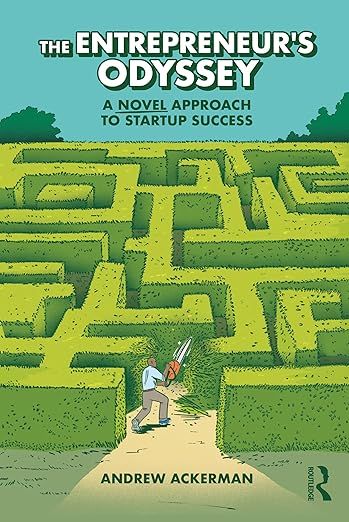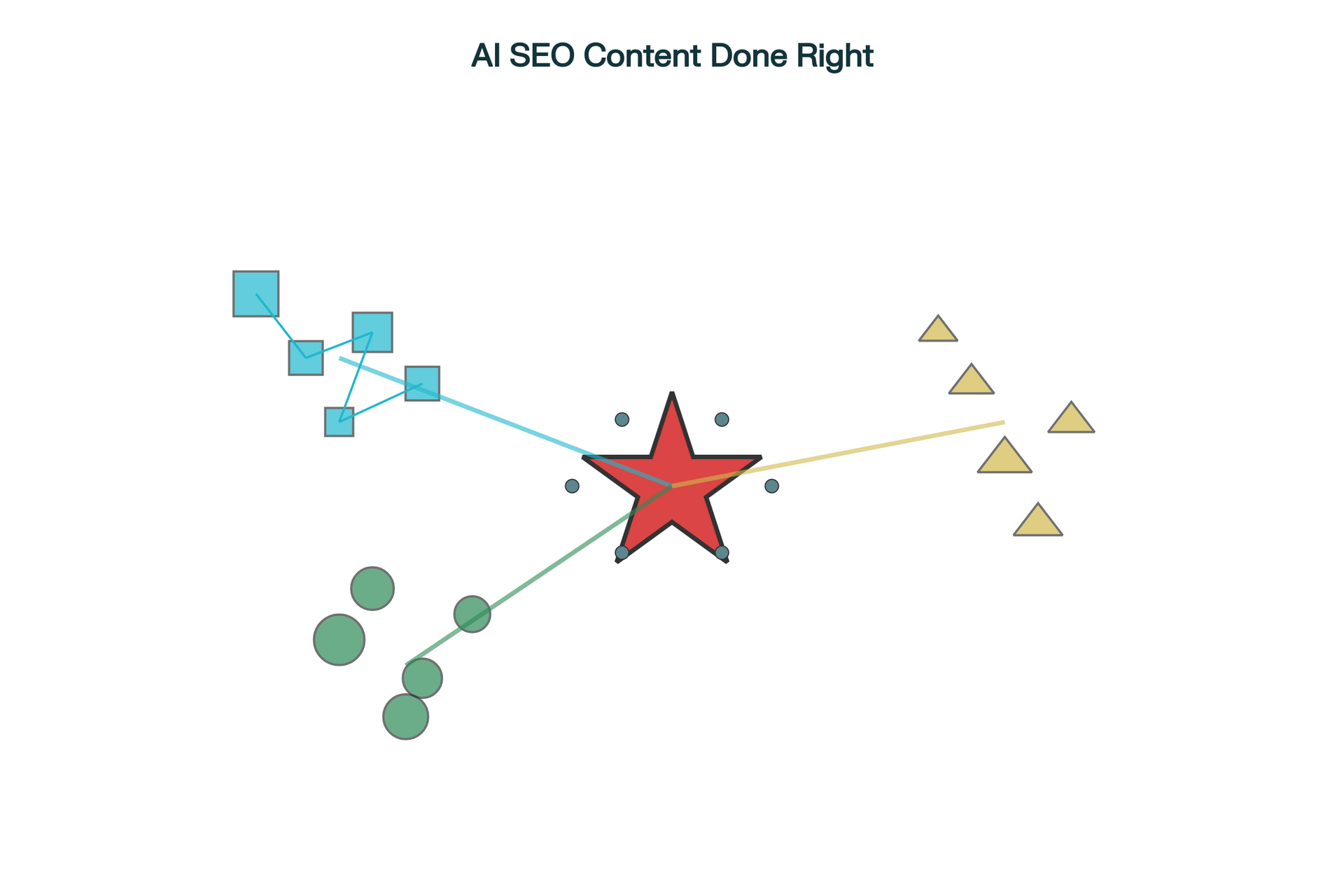Prompt Engineering: The Power of AI NinjaAI Prompt & Marketing Agency
AI Is Only as Smart as the Prompts You Feed It. We Engineer the Right Ones.
At NinjaAI, we turn ChatGPT, Claude, Gemini, and other large language models (LLMs) into reliable, high-performing tools that save you time, automate processes, and generate consistent results.
Prompt Engineering is the key to unlocking productivity, accuracy, and creative output from your AI systems — and we specialize in building prompt workflows that work across sales, support, marketing,
content, internal ops, and more.
🧠 What Is Prompt Engineering?
Prompt Engineering is the process of designing, structuring, and optimizing instructions (prompts) for AI systems like ChatGPT so they generate accurate, predictable, and useful results.
Most people use AI reactively. We make it proactive, personalized, and scalable — so it feels like an extension of your team, not a toy.
🚀 Our Prompt Engineering Services Include
1. Custom Prompt Libraries
Tailored prompts for sales reps, marketers, support staff, managers, and more
Role-specific workflows (e.g., “Write a cold email for an HVAC lead in Orlando”)
Structured to be reusable, consistent, and editable
2. Chain-of-Thought & Advanced Prompt Flows
Multi-step instructions to guide AI reasoning (great for legal, data, planning, and analysis)
“If/then” logic for more complex decision trees
Embedded context memory using priming technique
3. Prompt Training & Internal Playbooks
Teach your team how to write, test, and refine effective prompts
Build documentation with ready-to-use examples by use case or department
Empower non-technical staff to use AI effectively - every day
4. AI Prompt Automation (Optional Integration Support)
Turn prompt workflows into forms, buttons, and automations inside CRMs or dashboards
Create ChatGPT-powered tools for onboarding, writing, scripting, or customer service
Integrate with Zapier, Make, or API layers
5. Multilingual & Industry-Specific Prompts
Build bilingual or multilingual prompt sets (English + Spanish, French, Portuguese, etc.)
Design prompts for legal compliance, technical writing, healthcare, or education
🔧 Use Cases by Role & Department
Function
Example Prompt Outcome
Sales
“Write a follow-up email for a roofing lead in Tampa”
Marketing
“Generate a week of Instagram captions for a dental clinic”
Legal
“Summarize a 3-page lease agreement and flag key clauses”
Customer Service
“Respond to a refund request using our 2024 policy”
Real Estate
“Create a property listing description for a 3BR in Lake Placid”
Medical Office
“Send a pre-visit checklist for new patients in both English and Spanish”
🎯 Who Prompt Engineering Is For
Solo business owners and professionals looking to save time
Internal teams using ChatGPT but lacking prompt consistency
Agencies, consultants, and multi-location businesses seeking AI leverage
Legal, medical, financial, or technical firms needing predictable, compliant output
📊 Prompt Engineering Case Study
A
multi-location HVAC company in Florida used Ninja AI to design a prompt system for its sales reps and dispatch team. Results:
Reduced manual quote writing by 80%
Created 30+ reusable prompts for follow-ups, scripts, and service FAQs
Staff reported a 50% time savings across sales and admin tasks
💬 FAQs – Prompt Engineering Edition
Is this different from SEO or content creation?
Yes — this is about how you use AI internally. SEO is about search rankings. Content creation is about audience visibility. Prompt Engineering is about internal workflows, communication, and productivity.
Can I use this with tools other than ChatGPT?
Yes — prompts are adaptable across Claude, Gemini, Perplexity, Cohere, or custom LLMs.
Will I need a developer to use these prompts?
No — most of our prompt systems are written for non-technical users. Optional automation can be layered later.
🔗 Upgrade How You Work With AI — One Prompt at a Time
Don’t just “use AI” — master it. We’ll show you how to engineer smart, flexible prompts that give you a clear advantage in productivity, quality, and speed.
Frequently Asked Questions About Prompt Engineering
What is prompt engineering?
Prompt engineering is the art and science of crafting effective instructions or queries (prompts) to guide a generative Artificial Intelligence (AI) model, particularly Large Language Models (LLMs), to produce the most accurate, relevant, and desired output.
Think of it this way: AI models are incredibly powerful, but they don't know what you want unless you tell them clearly and precisely. Prompt engineering is about learning how to "speak" the AI's language to unlock its full potential.
Why is Prompt Engineering Important?
Prompt engineering is incredibly important for several key reasons, especially as AI models become more ubiquitous and integrated into various aspects of our lives and businesses:
1. **Unlocking AI's Full Potential: ** Generative AI models (like Large Language Models) are powerful, but they don't inherently *know* what you want. They've been trained on vast amounts of data, which allows them to recognize patterns and generate text, but without precise instructions, their output can be generic, inaccurate, or irrelevant. Prompt engineering provides the "key" to unlock their specific capabilities for your needs.
2. **Ensuring Relevant and Accurate Outputs:** A poorly crafted prompt can lead to the AI "hallucinating" (making up facts), going off-topic, or generating outputs that are technically correct but not useful for your specific goal. Prompt engineering allows you to guide the AI to produce results that are highly relevant, accurate, and aligned with your intentions.
3. **Improving Efficiency and Productivity:** Iterating endlessly with vague prompts wastes time. By learning to engineer effective prompts, you can get closer to the desired output on the first try, or with significantly fewer revisions. This dramatically speeds up tasks like content creation, data analysis, and problem-solving.
4. **Tailoring AI to Specific Use Cases:** Different business needs require different types of AI outputs. Prompt engineering enables you to customize the AI's behavior for specific tasks:
* **Customer Service:** Generating empathetic and informative replies.
* **Marketing:** Crafting persuasive ad copy for a specific audience.
* **Sales:** Developing objection-handling scripts.
* **Education:** Creating clear explanations or practice questions.
* **Software Development:** Generating accurate code snippets.
5. **Mitigating Bias and Ensuring Ethical AI:** AI models can inherit biases present in their training data. Prompt engineering can be used to explicitly instruct the AI to avoid biased language, adhere to ethical guidelines, or provide balanced perspectives, contributing to more responsible AI deployment.
6. **Bridging the Human-AI Communication Gap:** AI models process information differently than humans. Prompt engineering is essentially learning how to "speak" the AI's language effectively. It teaches you how to structure your requests in a way that the AI can best understand and act upon, making AI tools more accessible to a wider range of users, not just programmers.
7. **Adapting to Evolving AI Models:** As AI technology rapidly advances, new models and capabilities emerge. Prompt engineering skills are transferable; the fundamental principles of clear communication and structured instructions remain valuable regardless of the specific AI model you're using.
8. **Driving Innovation:** Creative prompt engineering can push the boundaries of what AI can do. By combining different techniques (like chain-of-thought prompting or few-shot examples), users can prompt AI to perform complex reasoning, generate novel ideas, or solve intricate problems in ways that weren't initially obvious.
In essence, prompt engineering transforms AI from a powerful but often unpredictable tool into a precise and reliable assistant. It's the critical skill that allows individuals and businesses to truly harness the transformative power of generative AI.
Can prompt engineering increase productivity effectively?
Yes, prompt engineering can significantly and effectively increase productivity across a wide range of business functions. It's not just a theoretical concept; it has direct, tangible impacts on how quickly, accurately, and efficiently tasks are completed when using AI.
Here's how prompt engineering boosts productivity:
Reduced Iteration Time (Getting it Right the First Time):
Without Prompt Engineering: You might type a vague request into an AI and get a generic or irrelevant response. You then have to rephrase, add details, and try again, potentially several times. This back-and-forth is a major time sink.
With Prompt Engineering: By crafting precise, contextualized, and well-structured prompts, you dramatically increase the likelihood of getting the desired output on the first or second attempt. This "getting it right the first time" approach is a huge productivity booster.
Automation of Repetitive and Time-Consuming Tasks:
Prompt engineering enables AI to automate tasks that previously required manual effort. This includes:
Drafting emails, reports, or summaries: Instead of spending hours writing, you can prompt the AI to generate a solid first draft in minutes.
Generating code snippets or scripts: Programmers can use prompts to quickly get boilerplate code or solve specific coding challenges.
Creating marketing copy for different channels: Rapidly produce variations for social media, ads, and email.
Summarizing long documents or meeting transcripts: Get the key takeaways instantly.
By offloading these tasks to AI, employees are freed up to focus on more complex, strategic, and value-added activities that require human creativity, critical thinking, and empathy.
Improved Quality and Consistency of Output:
Effective prompts lead to higher-quality outputs that are more accurate, relevant, and consistent in tone and style.
This reduces the need for extensive editing, fact-checking, or rewriting, saving considerable time and ensuring a consistent brand voice across all communications.
Enhanced Decision-Making:
Prompt engineering allows you to quickly extract insights from large datasets or complex information.
By asking the right questions, you can use AI to analyze trends, summarize market research, or identify key factors, enabling faster and more informed business decisions.
Scalability of Operations:
With well-engineered prompts, a single AI model can handle a vastly larger volume of tasks than a human. This means businesses can scale their content production, customer support, or data analysis capabilities without a proportional increase in headcount or operational costs.
Empowering Non-Technical Users:
Prompt engineering makes powerful AI tools accessible to a broader range of employees, including those without technical backgrounds. Sales, marketing, HR, and customer service teams can leverage AI directly to boost their own productivity without relying on developers.
Fostering Innovation and Creativity:
By automating the mundane, prompt engineering frees up mental bandwidth for employees to engage in higher-level creative thinking and problem-solving. AI can also be prompted to brainstorm ideas, suggest novel approaches, or explore different perspectives, acting as a creative partner.
Examples of Productivity Gains:
A marketing team can generate 10 social media posts in the time it used to take for 2, by using carefully crafted prompts for different platforms and tones.
A customer support agent can use AI to instantly draft answers to common FAQs, reducing response times and increasing the number of inquiries handled per hour.
A content writer can outline an entire blog series in a single afternoon, providing a strong foundation for future writing.
A financial analyst can quickly summarize key points from multiple company reports to inform investment decisions.
Why choose NinjaAI for prompt engineering?
1. **Specialized Expertise:**
* **The Problem:** Prompt engineering is a new and evolving field. Many businesses lack in-house expertise in effectively communicating with and leveraging AI models. Trying to figure it out through trial and error can be time-consuming and inefficient.
* **The Consultant's Solution:** A dedicated prompt engineering consultant like NinjaAI would bring specialized knowledge of LLMs, prompt patterns, fine-tuning techniques, and best practices. They understand the nuances of different AI models (GPT-4, Claude, Midjourney, etc.) and how to extract the best performance from each.
2. **Accelerated Time-to-Value:**
* **The Problem:** Businesses want to integrate AI quickly to see benefits. Without expertise, implementation can be slow, outputs suboptimal, and ROI delayed.
* **The Consultant's Solution:** Consultants can rapidly identify your business's AI needs, design and implement effective prompts, and integrate AI solutions more quickly. This means you start seeing productivity gains and cost savings much sooner.
3. **Optimized AI Performance and Output Quality:**
* **The Problem:** Generic prompts lead to generic or even incorrect AI outputs, requiring significant human oversight and correction.
* **The Consultant's Solution:** A consultant's core value is optimizing prompts for maximum accuracy, relevance, and desired tone. They can help you move from "okay" AI responses to truly high-quality, actionable outputs that directly serve your business objectives (e.g., highly converting marketing copy, accurate customer service replies, insightful data summaries).
4. **Cost and Resource Efficiency:**
* **The Problem:** Hiring a full-time prompt engineer might not be feasible for all businesses, especially smaller ones or those just starting with AI. Inefficient prompting also wastes AI model tokens/API calls, leading to higher operational costs.
* **The Consultant's Solution:** A consultant provides expertise on demand, without the overhead of a full-time hire. By optimizing prompts, they also help minimize unnecessary AI processing, leading to more cost-effective use of AI resources.
5. **Customized Solutions for Your Business Needs:**
* **The Problem:** Every business is unique, with specific challenges, brand voices, and target audiences. Off-the-shelf AI tools often need significant adaptation.
* **The Consultant's Solution:** A good consultant will work closely with you to understand your specific industry, internal processes, and strategic goals. They will then engineer custom prompts and AI workflows tailored precisely to your unique requirements, rather than applying a generic approach.
6. **Staying Current with AI Advancements:**
* **The Problem:** The AI landscape is evolving at an incredible pace. Keeping up with new models, prompt techniques, and best practices is a full-time job.
* **The Consultant's Solution:** Consultants are typically on the cutting edge of AI developments. They continuously research and experiment with the latest techniques, ensuring your business benefits from the most current and effective prompt engineering strategies.
7. **Training and Empowerment of Internal Teams:**
* **The Problem:** You want your internal teams to eventually use AI effectively, but they might lack the foundational knowledge.
* **The Consultant's Solution:** Many consultants, including those focused on prompt engineering, also offer training and workshops. They can empower your employees to write better prompts themselves, fostering AI literacy and self-sufficiency within your organization.
8. **Strategic AI Integration:**
* **The Problem:** Businesses often integrate AI in a piecemeal fashion, missing opportunities for synergistic benefits.
* **The Consultant's Solution:** A consultant can help you develop a cohesive AI strategy, identifying key areas where prompt engineering can drive significant value across different departments, leading to a more holistic and impactful AI adoption.






















